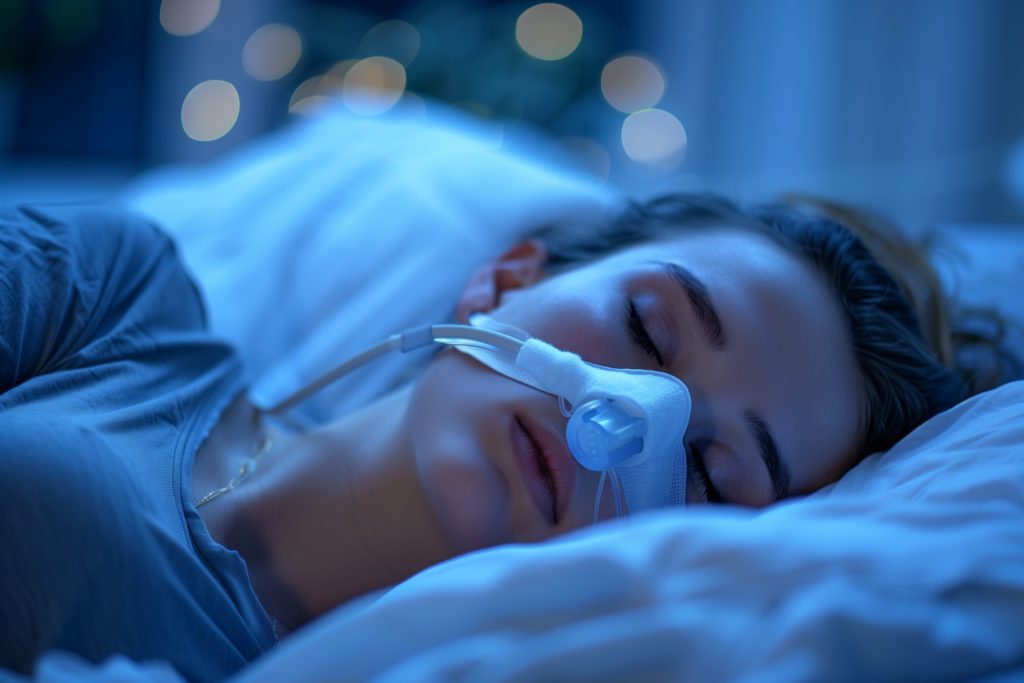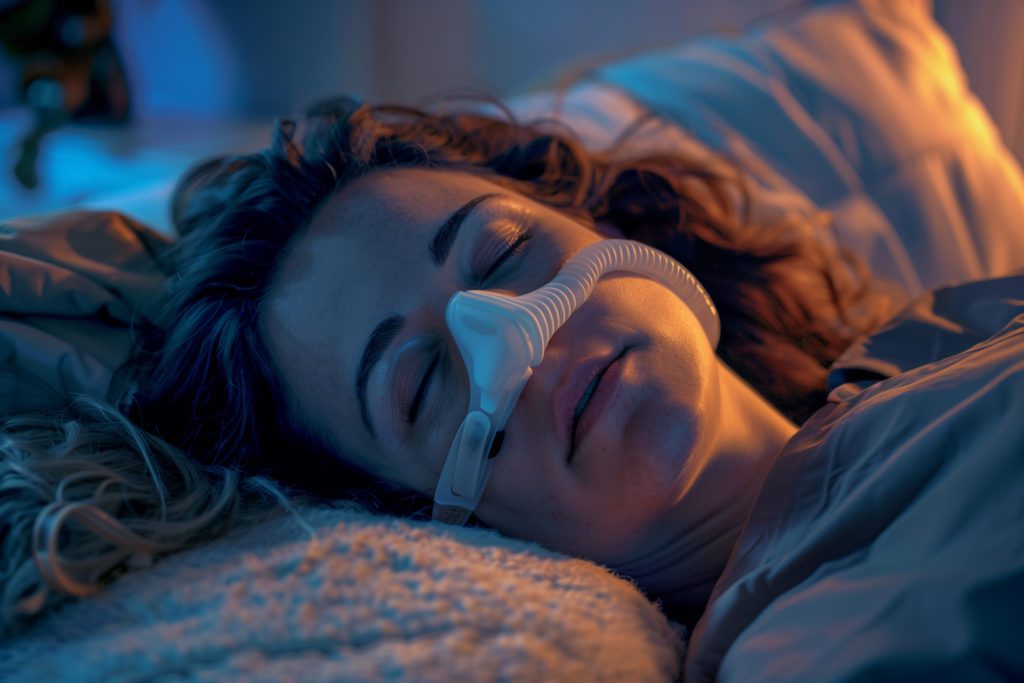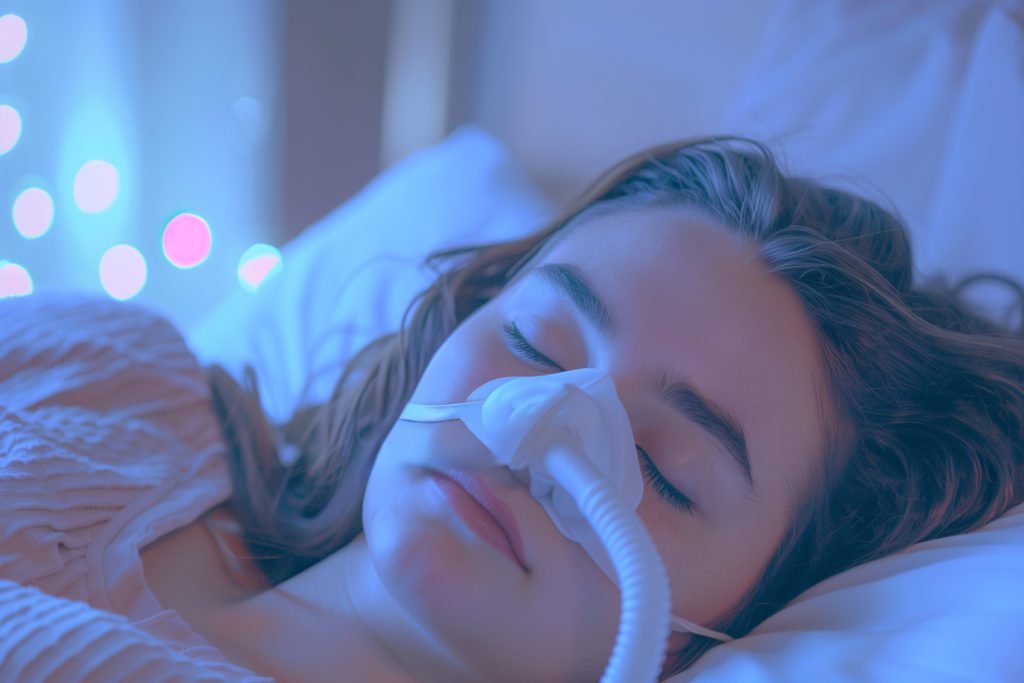
Optimizing Sleep Hygiene for Better Blood Oxygen Saturation: 10 Practical Tips
Boost your sleep quality and blood oxygen levels with these ten practical tips on sleep hygiene, including relaxation techniques and lifestyle changes.

When it comes to your sleep health, your blood oxygen saturation is more important than you might initially think. The higher your blood oxygen saturation is, the better your overnight sleep will be, and the more you will support your overall health. A healthy individual typically presents at least 96% to 98% blood oxygen saturation at sea level, and anything below 94% is considered hypoxia, which can create a sensation of breathlessness, even leading to long-term health implications (Source: Sensors).
With blood oxygen saturation so necessary, we can prioritize our sleep hygiene to ensure we are maintaining optimal levels, but how? What steps can we take to optimize our sleep hygiene so we can support better blood oxygen saturation? That’s exactly what we’ll explore in this article. We’ll uncover ten practical tips to help you encourage better sleep hygiene so you can enjoy higher blood oxygen saturation levels. From maintaining consistent sleep schedules to limiting certain foods before bed, let’s get into it.
1. Maintain a Consistent Sleep Schedule
If you want to improve your sleep, one of the first things you should do is prioritize your sleep. That means sticking to a regular sleep schedule, which is one of the first things patients are taught as they are learning about sleep hygiene, especially those who are struggling with insomnia (Source: PubMed). Generally speaking, you should aim for around seven to nine hours of sleep so you ensure you’re rested and ready to tackle the next day and that your blood oxygen saturation levels do not lower significantly.
2. Create a Restful Environment for Optimal Rest
Another important tip that many people might overlook is the importance of creating the right sleep environment. When you optimize your bedroom, you’ll enjoy better rest. One of the best tips to ensure you’re sleeping enough is to reduce the noise in your room, as it can improve sleep even in environments as chaotic at times as the ICU. When you sleep better, you’ll encourage better oxygen levels so you continue to rest and recover appropriately.
3. Watch What You Eat and Drink Before Bed
Caffeine is one of the worst things to have before you go to bed, and it can lower your chances of getting optimal rest and support better blood oxygen saturation. You should avoid caffeine after the afternoon, as it can actually hurt your rest and cause sleep disruptions. Studies show that it can decrease blood flow, therefore reducing oxygen levels and causing changes to your circadian rhythm (Source: PubMed).
4. Practice Relaxation Techniques
The more that you manage your stress, the better your rest will be and the less likely that you will have sleep disruptions. Given that disruptions to sleep disrupt your body’s circadian rhythm and blood oxygen saturation levels, using specific relaxation techniques can be a powerful tool to lower your blood pressure, decrease your anxiety, and allow you to fully rest so you can enjoy optimal rest and oxygen levels (Source: PubMed).
5. Move Your Body Regularly
You don’t have to be a gym rat in order to support your sleep hygiene! Even just short sessions where you move your body in ways that make you feel your best can help you. Exercising can help you encourage better sleep efficiency and duration, especially if you suffer from diseases. Not to mention, the more that you work out, the more you’re supporting your body’s natural processes and its blood oxygen saturation, too.
6. Optimize Your Sleeping Position
If you struggle with low blood oxygen saturation levels, it might be because of your choice of sleep position. One of the most common issues people face that causes low blood oxygen saturation is obstructive sleep apnea. To avoid positional obstructive sleep apnea that can worsen your blood oxygen saturation, try to train your body to sleep in the supine position. It has been shown to influence people’s sleep health and their blood oxygen levels significantly.
7. Use a Humidifier in Your Room
For those who already struggle with proper blood oxygen saturation levels, using a humidifier might be a great alternative to encourage easy breathing because it helps maintain optimal humidity levels in your home. For patients with dyspnea and advanced cancer, the use of a heated, humidified, high-flow nasal cannula improved their oxygen levels. It was shown to be a great source of oxygen therapy to help encourage their health while promoting optimal rest. For healthy individuals, humidifiers could also produce similar results!
8. Make Healthy Meal Choices
You can’t go wrong with continuing to make healthy lifestyle choices, including what goes on the plate. While few studies have been shown to connect diet to blood oxygen saturation, several studies have shown that healthy, balanced meals lead to healthier well-being. That means limiting processed food, eating whole and natural snacks and dishes, and choosing to find healthier alternatives. While this is a small step to encourage blood oxygen saturation, it can improve your sleep—and your overall health!
9. Create a Relaxing Bedtime Routine
Without a proper bedtime routine, it is nearly impossible to maintain good sleep hygiene. Just think about it: if you don’t have a proper routine that relaxes and unwinds you before rest, you could lay there staring at the ceiling for hours. You can take several steps to create a bedtime routine, like taking a bath, avoiding electronics, and more.
10. Mind How You Use Technology Before Bed
Finally, last but certainly not least, you should also consider how you use your electronics before bed. While it might be tempting to scroll on social media, the blue light from these devices can limit your potential to rest. The blue light from our electronic devices makes our sleep shorter. It’s also more challenging to fall asleep after exposure to blue light. So, try to put the electronics away when bedtime arrives to ensure you sleep well and protect your overall health.
How Will You Improve Your Sleep Hygiene?
With all of these tips, you have plenty of insights to help you encourage better sleep hygiene. Remember: the more that you protect your sleep and avoid disruptions overnight, the better you’ll feel and the more you’ll support optimal blood oxygen saturation levels. What steps will you take today to help encourage better rest and recovery?

Written by
Marie Soukup
Marie Soukup is a seasoned copywriter, editor, and Integrative Nutrition Health Coach with a certificate from the Institute of Integrative Nutrition (IIN). With years of experience working with brands across diverse industries, Marie is passionate about holistic health and crafting compelling content.
Download Pillow
Get help
Press & News
Legal
Connect
X (Twitter)
Company
Copyright © Neybox Digital Ltd.



